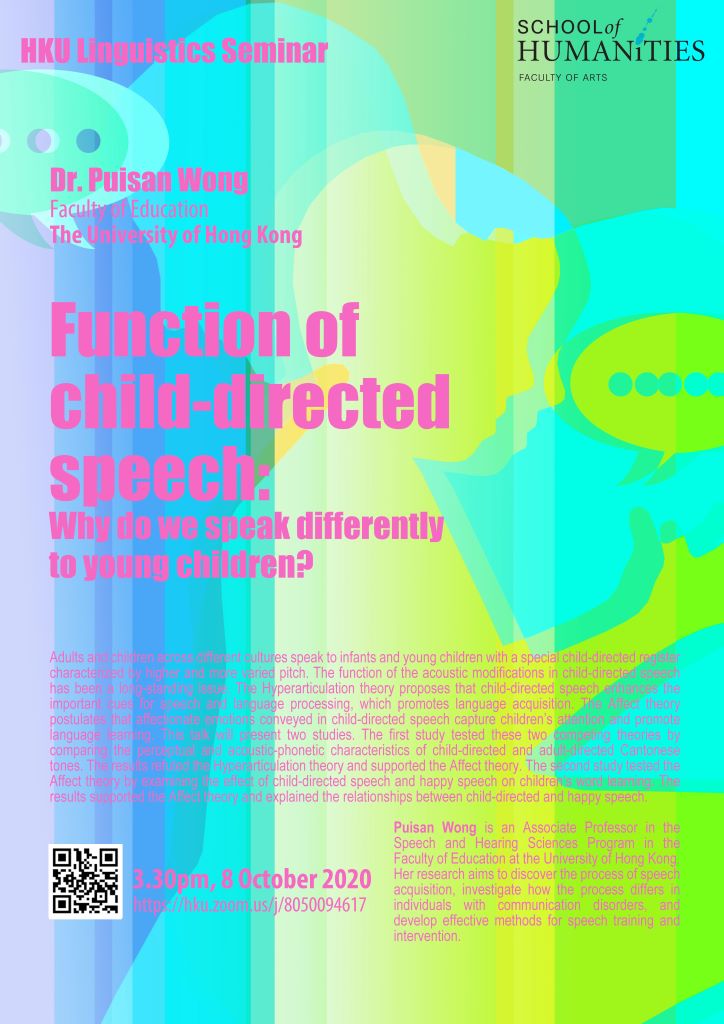
Function of Child-directed Speech: Why do We Speak Differently to Young Children? – Dr. Puisan Wong, The University of Hong Kong
October 8, 2020 @ 3:30 pm - 5:00 pm
Abstract
Adults and children across different cultures speak to infants and young children with a special child-directed register characterized by higher and more varied pitch. The function of the acoustic modifications in child-directed speech has been a long-standing issue. The Hyperarticulation theory proposes that child-directed speech enhances the important cues for speech and language processing, which promotes language acquisition. The Affect theory postulates that affectionate emotions conveyed in child-directed speech capture children’s attention and promote language learning. This talk will present two studies. The first study tested these two competing theories by comparing the perceptual and acoustic-phonetic characteristics of child-directed and adult-directed Cantonese tones. The results refuted the Hyperarticulation theory and supported the Affect theory. The second study tested the Affect theory by examining the effect of child-directed speech and happy speech on children’s word learning. The results supported the Affect theory and explained the relationships between child-directed and happy speech.
Biosketch
Puisan Wong is an Associate Professor in the Speech and Hearing Sciences Program in the Faculty of Education at the University of Hong Kong. She was an Assistant Professor in the Department of Speech Communication Arts and Sciences at City University of New York (CUNY) and a Research Scientist in the Department of Otolaryngology at the Ohio State University before joining the University of Hong Kong. She holds the Certificate of Clinical Competence from the American Speech-Language-Hearing Association. Her research aims to discover the process of speech acquisition, investigate how the process differs in individuals with communication disorders, and develop effective methods for speech training and intervention.

